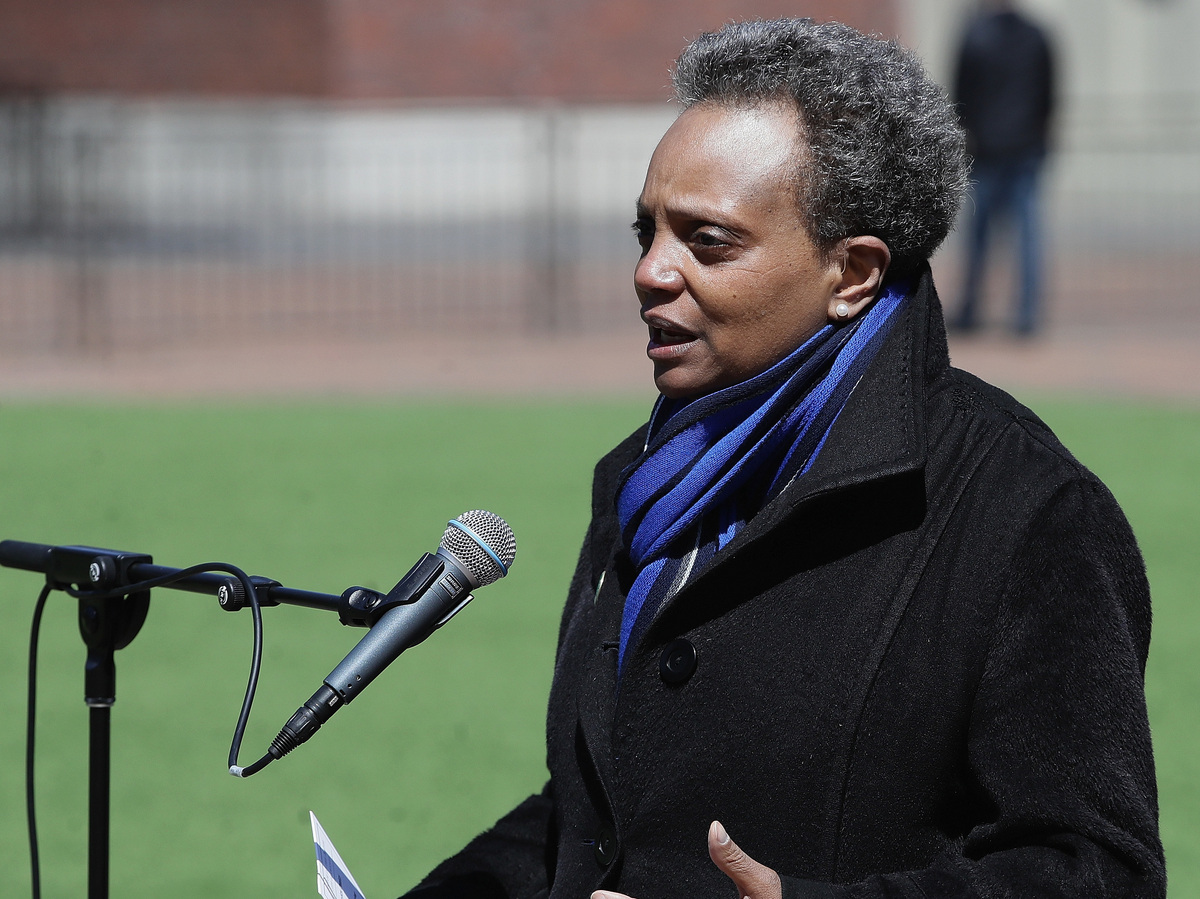
Chicago mayor Lori Lightfoot speaks during a press conference outside of Wrigley Field on April 16, 2020 (Photo by Jonathan Daniel/Getty Images) Jonathan Daniel/Getty Images hide caption

Chicago mayor Lori Lightfoot speaks during a press conference outside of Wrigley Field on April 16, 2020 (Photo by Jonathan Daniel/Getty Images)
Jonathan Daniel/Getty ImagesWhen Chicago mayor Lori Lightfoot lost her re-election bid this week, many people saw the result as a referendum on how she handled crime.
But crime is not just a Chicago issue. Nationally, murders, shootings, and thefts are up. Communities that feel under siege are looking to hold elected leaders accountable for their failure to address the problem. But when agreements on how to solve crime break down along party lines -and even within parties- are politics hindering potential solutions?
Host Michel Martin talks to Thomas Abt, senior fellow at the Council on Criminal Justice, about non-partisan, research-based solutions. We also hear from Ja'Ron Smith, a fellow with Right on Crime, a conservative criminal justice reform coalition.
Email us at
This episode was produced by Marc Rivers. It was edited by Jeanette Woods. Our executive producer is Miranda Kennedy.

 Live Radio
Live Radio